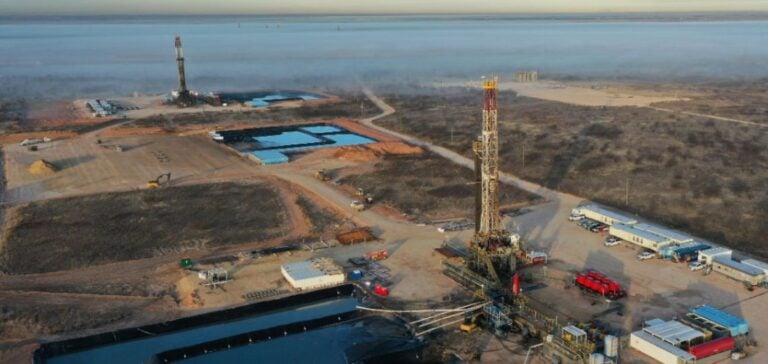Well drilling costs in the United States are set to fall by a significant 10% in 2024, after peaking in 2023.
This is mainly due to significant efficiency gains, although oilfield services (OFS) prices remain high.
A recent report by Wood Mackenzie, entitled “2024 tight oil costs: the push and pull between efficiency and OFS rates”, sheds light on this trend.
Lower prices for essential materials such as oilfield steel tubing (OCTG), proppant and diesel, combined with significant gains in drilling and completion efficiency, have contributed to lower costs for production companies (E&P).
However, further cost reductions will be difficult to achieve in the current environment, where oil service companies are seeking to maintain their high margins.
Nathan Nemeth, Senior Analyst at Wood Mackenzie, points out that more efficient operations enable production companies to drill and complete wells more quickly, thereby reducing costs.
At the same time, oil service companies are using more efficient equipment and workflows to keep prices high.
Forecasts for the number of Platforms
Wood Mackenzie forecasts that by the end of 2025, 40 more rigs will be active than at present, mainly in gas fields and the Permian basin.
However, faster drilling operations reduce the need for more rigs.
A 5% improvement in drilling efficiency could lead to a reduction of around 28 rigs needed in the market.
With activity relatively stable, rig operators will seek to maintain high utilization rates to preserve prices and margins.
Impact on small producers
The report points out that future cost trends will depend on the balance between efficiency gains and gradual increases in unit prices.
This means that price trends will be operator-dependent, depending on the technology and equipment used.
For example, the deployment of “simul-frac” technology and the adoption of new electric pumping units have accelerated the trend towards faster, cheaper and more reliable operations with lower emissions.
Since 2020, pumping efficiency has increased by between 30% and 100%, depending on the technology used.
Larger producers, with the scale to commit to longer-term contracts for new equipment and technologies, will achieve further efficiency gains and maintain lower costs.
Smaller producers, on the other hand, will be the most exposed to inflationary headwinds, which could motivate even more M&A activity in the region.
The analysis shows that well-drilling costs in the USA are on the way down thanks to efficiency gains, despite stable oil service prices.
Larger producers are benefiting from their ability to commit to long-term contracts for more efficient equipment, while smaller producers, faced with rising inflation, may be looking for consolidation opportunities to remain competitive.
The evolution of costs will depend on the ability of companies to innovate and adopt new technologies to further improve their operational efficiency.






















